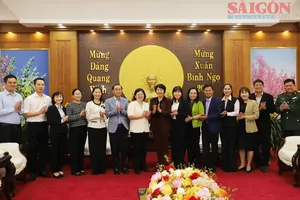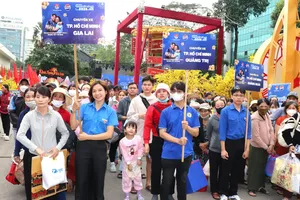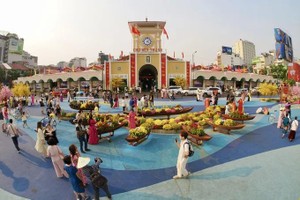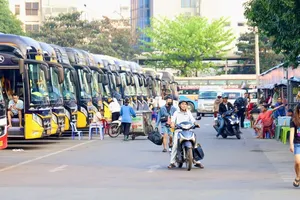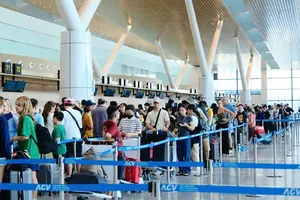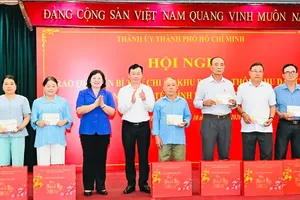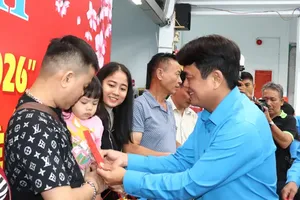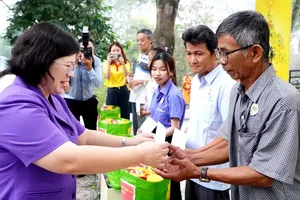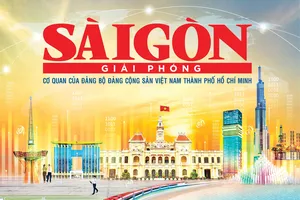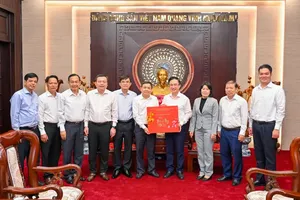The third meeting session of the Advisory Council for Resolution 98/2023/QH15 pilot implementation of special mechanisms and policies for the development of Ho Chi Minh City; a working team of experts consulting and building a project for the development of the Ho Chi Minh City urban railway system according to conclusion No. 49-KL/TW of the Politburo was opened on December 15 morning, with a chair of Chairman of the Municipal People's Committee Phan Van Mai.
Efforts to submit the project in early 2024
Speaking at the meeting, Chairman of the Ho Chi Minh City People's Committee Phan Van Mai informed that in recent times, the city has proactively coordinated with ministries and sectors to consult decrees guiding the implementation of Resolution No.98.
The Ministry of Finance and the Ministry of Internal Affairs were assigned to consult a decree which is expected to be summited to the Government for promulgation this month.
Regarding instructions related to rooftop solar power and carbon credits, Ho Chi Minh City is also proactively studying and making proposals.
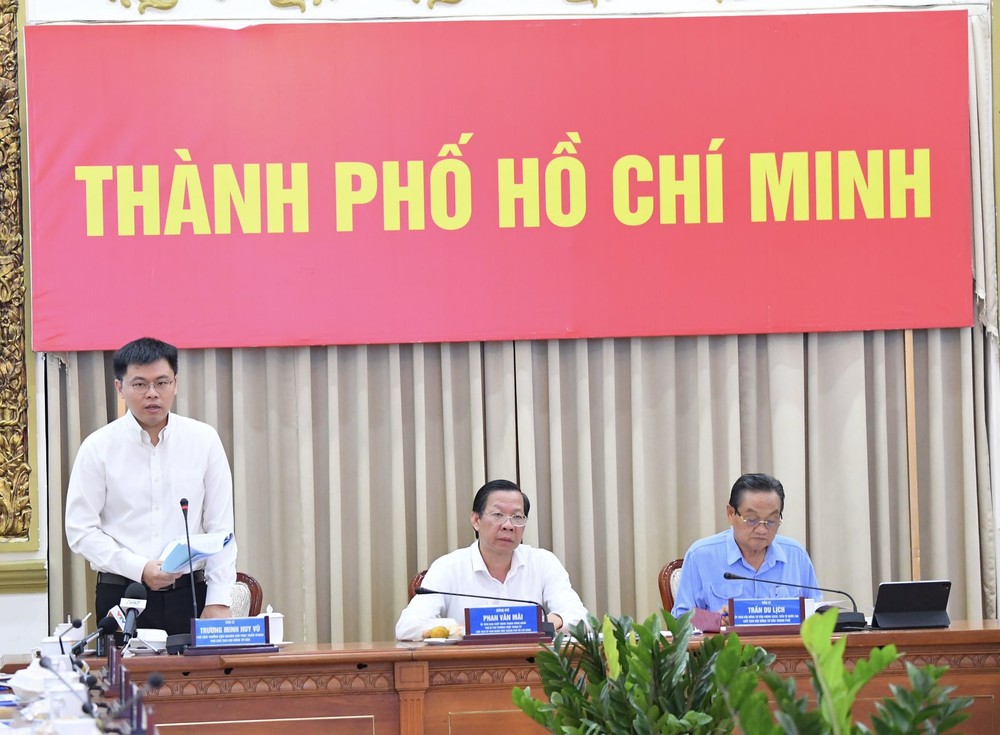
Chairman of the Ho Chi Minh City People's Committee Phan Van Mai requested the Advisory Council to make proposals on how to effectively organize and implement projects under forms of BT and BOT, urban railway projects during the process of studying.
According to the city leader, the planning of Ho Chi Minh City's 200-kilometer-long urban railway system has been implemented in nearly two decades.
Recently, the Politburo issued Conclusion No.49, including a target of completion timeline in 2035 for Ho Chi Minh City and the capital city of Hanoi to complete the urban railway system.
Chairman Mai conceded that it is an important political orientation. Thereby, Ho Chi Minh City will base on Resolution 98 to develop a project and submit it to the Politburo and the National Assembly for implementation.
The chairman showed some urgent issues in need of discussion and comments from the Advisory Council and the team of experts at the meeting.
In July of 2023, Ho Chi Minh City established a working group for building a comprehensive project following the same policy and mechanism, urgently completing the project this year.
Ho Chi Minh City strives to submit the contents above mentioned to the Standing Committee of the Ho Chi Minh City Party Committee and the People's Council in early 2024 before reporting to the Politburo and the Standing Committee of National Assembly for consideration and approval at the mid-year meeting agenda.
As for the mechanism, Chairman of the Ho Chi Minh City People's Committee Phan Van Mai said that following Conclusion No.49, the urban railway project would be completed by 2035.
Thus, Ho Chi Minh City only counts down 12 years for the project implementation. In order to reach the set goal, HCMC must study and deploy another way to implement of metro line No.1 project.
Additionally, it is essential to have special mechanisms to mobilize capital, perform project investment procedures and shorten project preparation time and so on.
Chairman Mai also noted that the development of the urban railway system must be associated with its operation and maintenance.
Thus, the development of the urban railway system must be associated with the railway sector along with other issues.
The Chairman of Ho Chi Minh City People's Committee hoped that the meeting session would collect valuable comments, reach a consensus on the project completion timeline and have specific solutions for implementation.
Identifying as a national key project
Presenting the draft project for the development of the Ho Chi Minh City urban railway system, a representative of the Ho Chi Minh City Urban Railway Project Management Board said that the goal of implementing a 200-kilometer-long urban railway system by 2035 would be feasible based on breakthroughs following unsuccessful lessons domestically and around the world as well as implementation on a new legal framework.
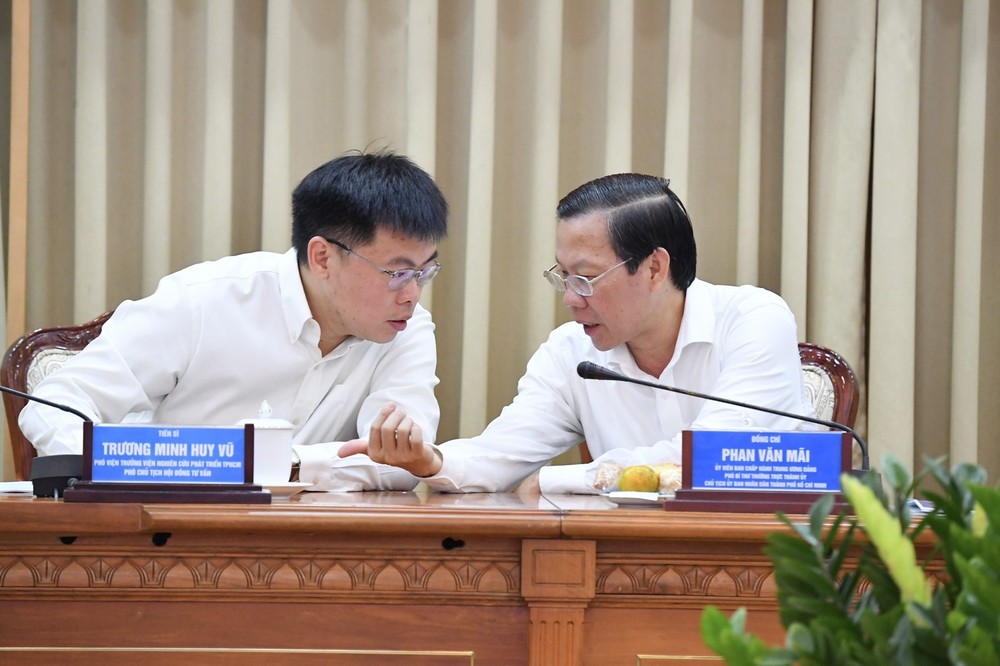
The project also proposed six specific mechanisms to reach the above goal, comprising mechanisms for planning, compensation for land recovery, financial mechanisms, investment project management and so on.
Of which, Ho Chi Minh City was proposed to make and approve the detailed planning project of 1/500 scale of the metro system following a transit-oriented development (TOD) station as a basis for auctioning the right to develop the TOD project and create investment revenue to build a metro system.
Besides, there is a proposal to invest in an urban railway system project with a total length of about 200km combined with urban development and embellishment of the TOD area according to planning, completing the project in 2035 and decentralizing and authorizing Ho Chi Minh City to decide on related issues and so on.
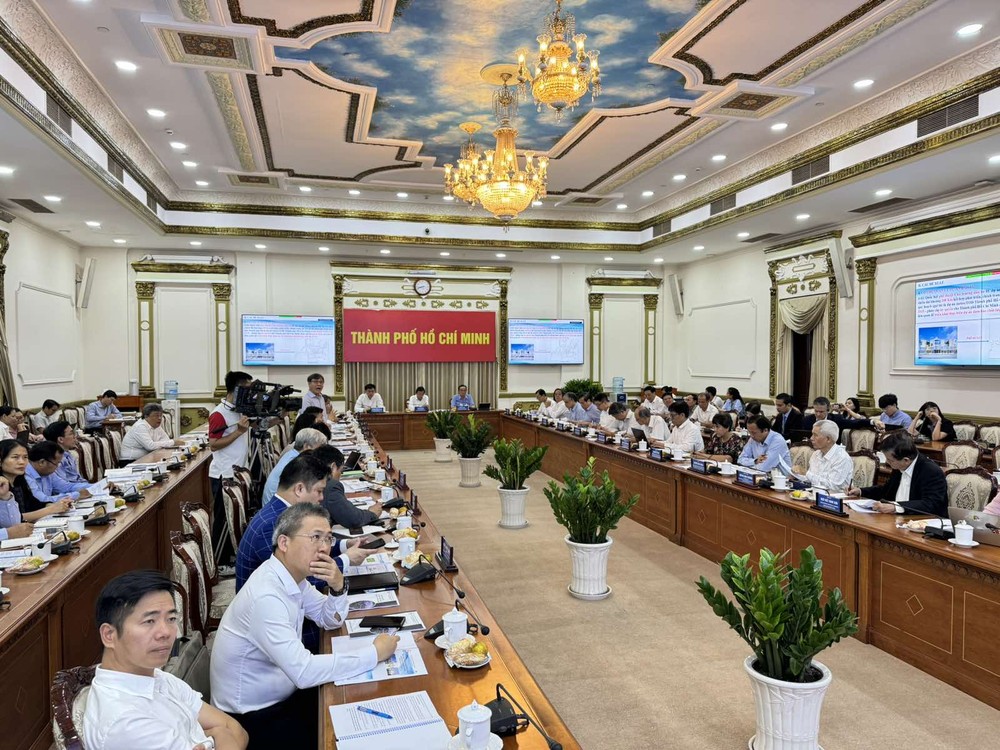
After listening to the above solutions, the representatives of the Ho Chi Minh City Urban Railway Management Board said that the unit will help Ho Chi Minh City complete the goal of a 200-kilometer-long urban railway system by 2035 and save more than US$10 billion in total investment compared to the current method.

